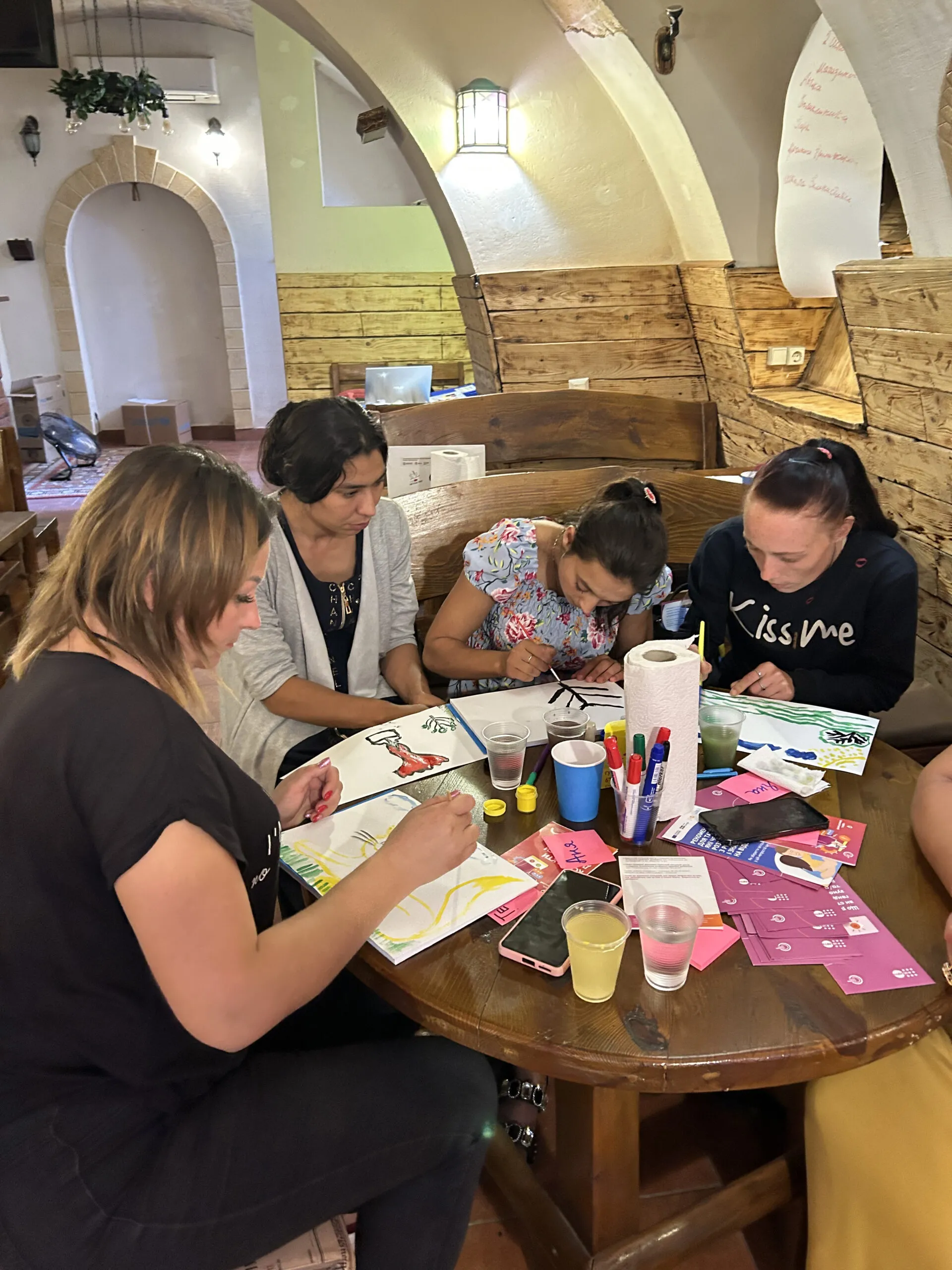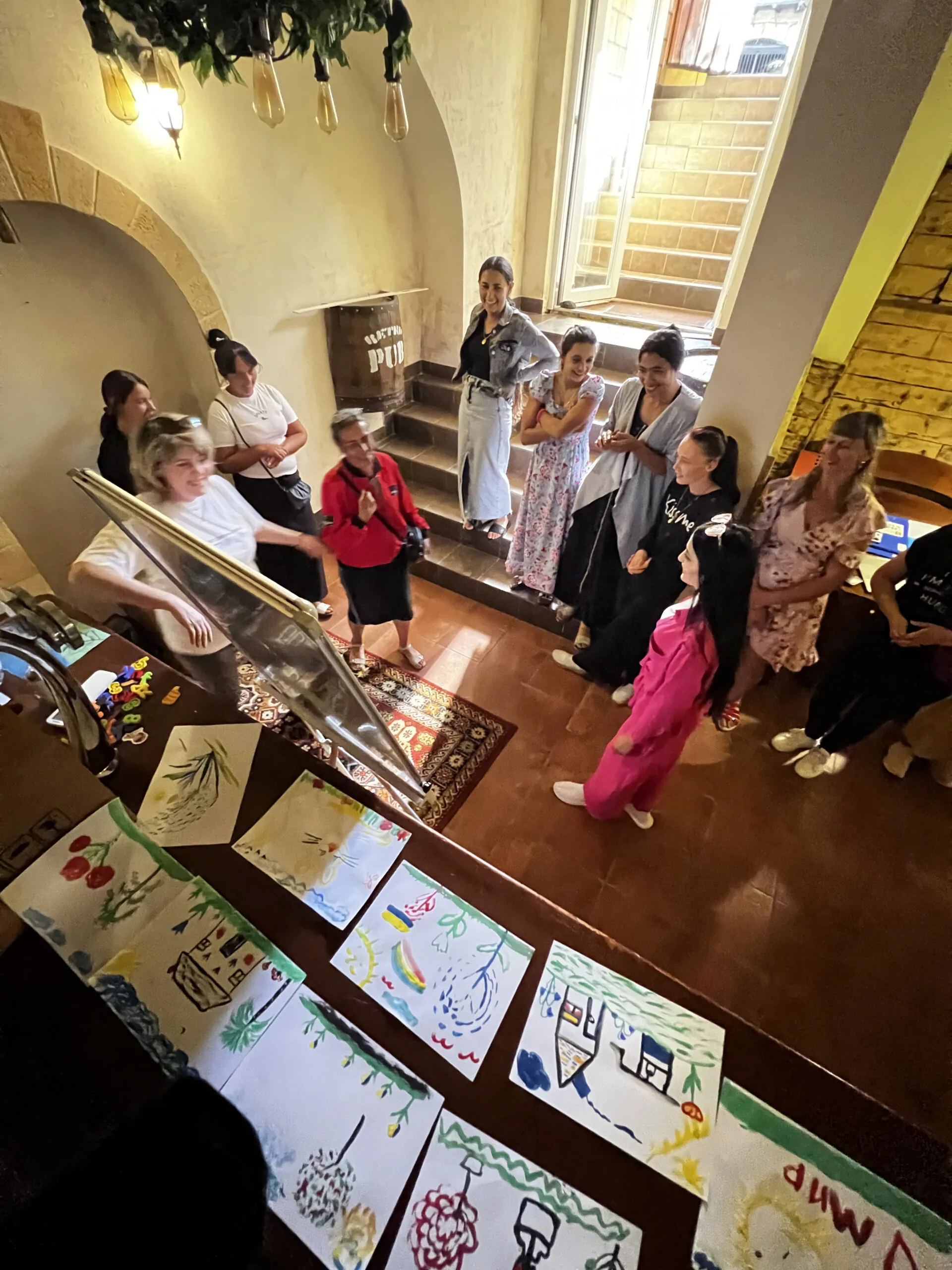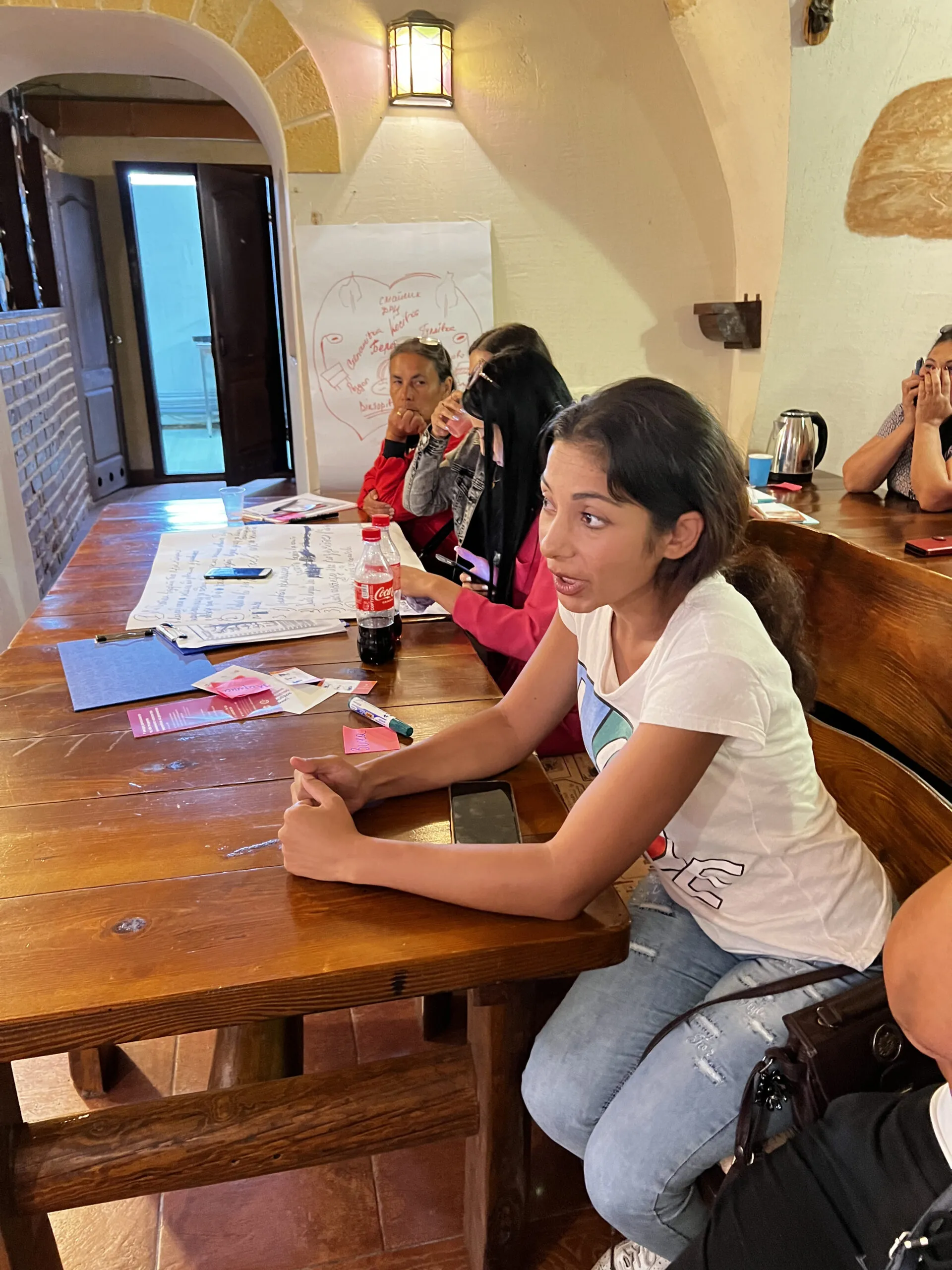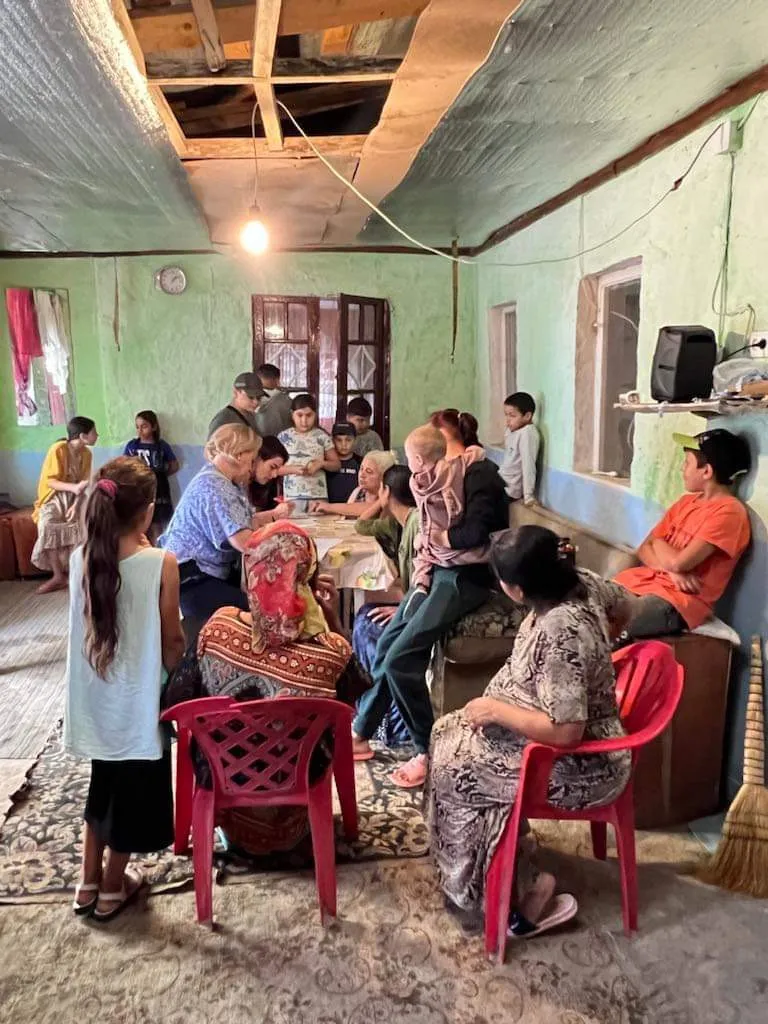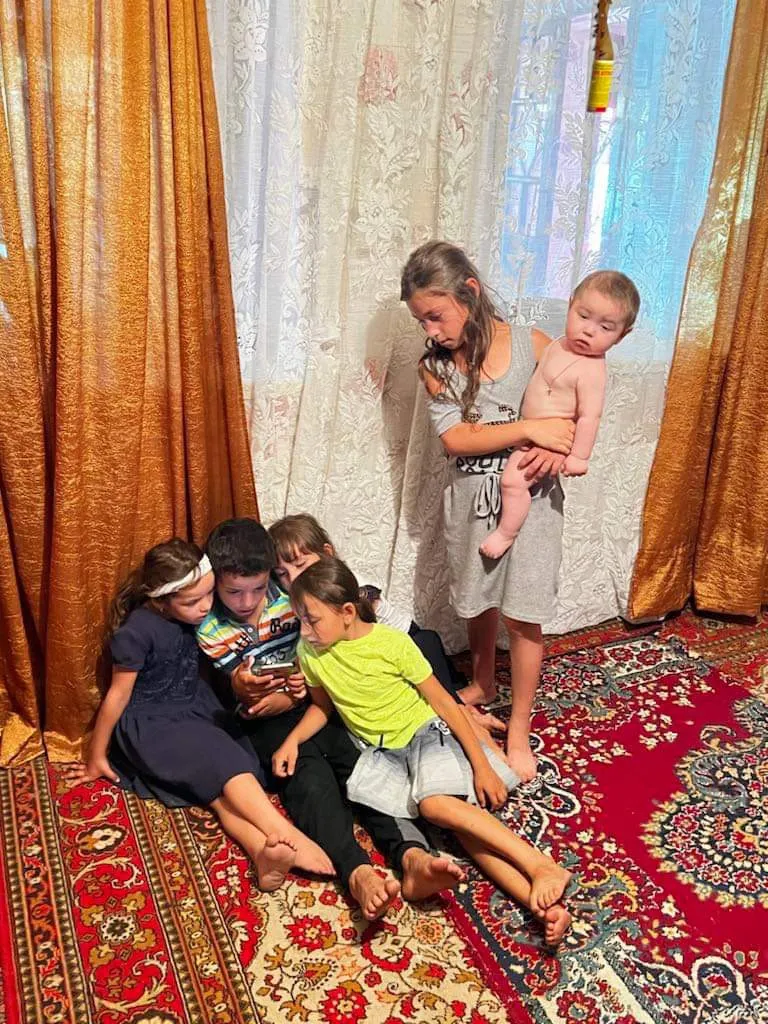Winds of Change, a CARE partner organization, has been working with the Roma community for over four years.
Roma, also called Romany, is an ethnic group of traditionally itinerant people who originated in northern India but now live principally in Europe.
The word “Roma” means “man” and refers to different communities, including Kalderash in southeastern Europe, Romanichals in England, Sinti in Germany, Italy, and France, Kalé in Wales, Finland, Spain and Portugal, and Gitano from Spain, as well as many others around the world — there are an estimated 400,000 Roma people in Ukraine.
As part of CARE’s Women’s Lead in Emergencies model, Winds of Change is working with the Roma communities in Ukraine to train women to take part in leadership.
‘I dreamed of being an artist’
Svitlana was 15 when she got married. She married her husband “under the Roma law.” They have no legal marriage documents.
“He stole me from my parents, and since then we have been living together,” Svitlana says. “This is how most Roma girls live. [They say] women should only look after children, clean and cook… But when I was a child, I dreamed of being an artist. To paint beautiful patterns on the facades of the house. It’s a pity that I never did.”
Some 80 percent of girls in the Roma community have similar stories. From a young age they help their parents look after younger children, and between the ages of 12 and 15 they are coerced into marriage where they then start their adult life.
Now she has six children.
She dreams that all her children will be educated. So, this year, with the support of the Winds of Change Foundation, three of her six children went to the first grade, and two went to the second grade.
For Svitlana, it was an indescribable joy.

